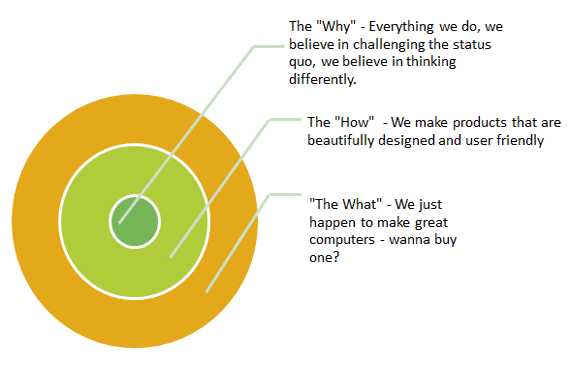Mastering Marketing Strategy: Definition and Examples
Marketing strategy is the foundation of any successful business. It is the roadmap that guides your efforts to achieve your business goals. In this article, we will provide a concise definition of marketing strategy and explore some examples to help you understand how it works in practice.
Photo by Anastasia Shuraeva
What is a Marketing Strategy?
A marketing strategy is a comprehensive plan that outlines the actions and tactics you will employ to promote your products or services to your target audience. It involves understanding your customers, analyzing your competitors, and leveraging your unique value proposition to create a competitive advantage.
In essence, a marketing strategy is a powerful tool that helps businesses navigate the complexities of the market, connect with their target audience, and achieve their desired business goals. It's not just about making sales; it's about building relationships, fostering loyalty, and creating a lasting impact that resonates with customers.
Why is a Marketing Strategy Important?
Having a well-defined marketing strategy is crucial for several reasons:
- Focus: It helps you align your marketing efforts with your overall business objectives, ensuring that every action you take contributes to your desired outcomes.
- Differentiation and Competitive Advantage: A well-crafted strategy helps businesses differentiate themselves from competitors by highlighting their unique selling points and positioning them as the preferred choice for their target audience.
- Targeting: By defining your target audience and understanding their needs and preferences, you can tailor your marketing messages and channels to reach them more efficiently.
Examples of Effective Marketing Strategies
To illustrate how marketing strategies work in practice, let's look at a couple of examples:
- Nike: Nike's marketing strategy revolves around inspiring athletes and promoting a lifestyle of fitness and achievement. Through powerful storytelling and partnerships with top athletes, Nike has built a strong brand image that resonates with its target audience. The brand's partnerships with iconic athletes, such as Michael Jordan and Serena Williams, serve as powerful testimonials to the transformative power of Nike products and the lifestyle they represent. This storytelling strategy has resonated deeply with Nike's audience, establishing it as a leading brand in the sportswear industry.
- Apple: Apple's marketing strategy focuses on creating a sense of exclusivity and innovation. By emphasizing sleek design, simplicity, and user experience, Apple has positioned itself as a premium brand that appeals to tech-savvy consumers. Simon Sinek, a leadership expert and author of "Start With Why," has provided insights into Apple's success. He emphasizes that Apple's success is based on its clear understanding of its own purpose and its focus on innovation rather than novelty. Sinek also highlights the importance of strong, charismatic leadership that starts with "why" and the combination of "why" with "how" in driving the company's success. According to Sinek, Apple's ability to communicate its purpose and make people feel a sense of belonging to a community has been instrumental in its achievements.
Source: Neil Patel blog
By studying successful marketing strategies, you can gain insights into how to develop your own unique approach that aligns with your business and target audience.
Harnessing AI for Marketing Strategy: Unlocking Data-Driven Insights
In today's data-driven world, artificial intelligence (AI) is revolutionizing the realm of marketing strategy. AI-powered tools and platforms enable businesses to collect, analyze, and act on vast amounts of data, providing valuable insights that were previously unattainable.
AI-Powered Tools for Marketing Strategy:
- Segmentation and Targeting: AI can analyze customer data to identify patterns and trends, enabling businesses to create highly targeted marketing campaigns.
- Personalized Content: AI can create personalized marketing messages and offers tailored to individual customer preferences, leading to increased engagement and conversion rates.
- Ad Campaign Optimization: AI can optimize ad placements and bids in real-time, ensuring that marketing dollars are used most efficiently.
- Customer Behavior Prediction: AI can use machine learning algorithms to predict customer behavior, allowing marketers to anticipate customer needs and tailor their offerings accordingly.
- Customer Service Automation: AI-powered chatbots and virtual assistants can provide 24/7 customer support, reducing the burden on human customer service representatives.
- Social Media Sentiment Analysis: AI can analyze social media posts and comments to gauge customer sentiment, identify trends, and measure the effectiveness of marketing campaigns.
And so to develop a unique and effective marketing strategy, businesses can leverage the power of artificial intelligence (AI) to gain insights from successful campaigns and tailor their approach to align with their specific goals, target audience, and industry.
Want to access more marketing strategies that have succeeded and that resonate with your business or project? Try AskCory.ai for free now and in less than 10 minutes build your unique marketing strategy!
As AI continues to evolve, its role in marketing strategy is bound to grow even more prominent. Businesses that embrace AI will gain a competitive edge by making more informed decisions, optimizing their marketing efforts, and delivering a more personalized customer experience.
Conclusion
A marketing strategy is vital for businesses of all sizes. It provides a clear roadmap for achieving your business goals and helps you stand out from the competition. By understanding your customers, leveraging your strengths, and learning from successful examples, you can develop a powerful marketing strategy that drives your business forward.
Now that you have a solid understanding of what a marketing strategy is and why it matters, it's time to put this knowledge into action. Start by defining your goals, researching your target audience, and then consider applying the Bullseye Framework that will help you achieve success in the dynamic world of marketing.
Remember, mastering the art of marketing strategy takes time and ongoing refinement. Stay agile, be open to experimentation, and continuously evaluate and adjust your approach to stay ahead in the ever-evolving business landscape.
Copyright © 2025 AskCory. All rights reserved.
Built by Build Up Labs, from sunny Lisbon to the world :)


